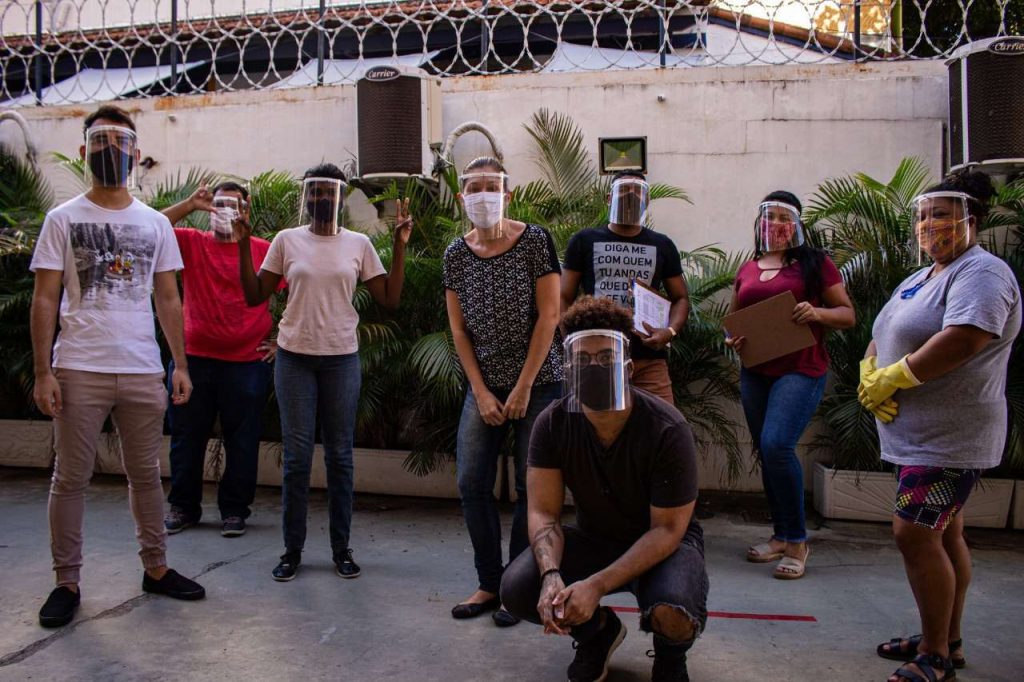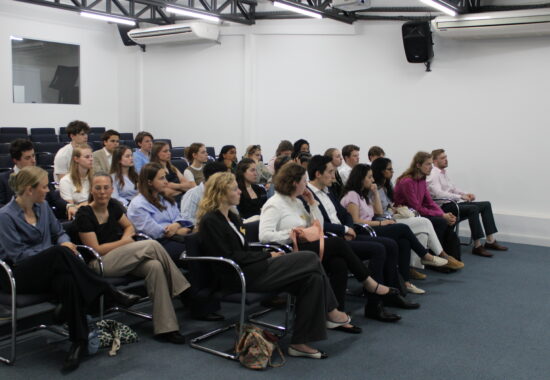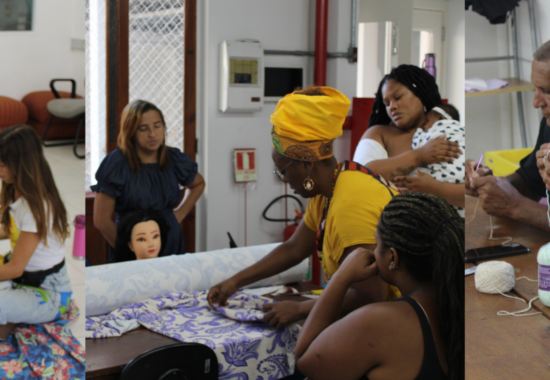

No final da década de 1980, como médica, trabalhando no Hospital da Lagoa, no Rio de Janeiro, percebi claramente a relação entre as doenças que acometiam as crianças lá internadas e a situação de risco e vulnerabilidade social a que elas e suas famílias estavam submetidas. Poucos anos depois, fundei, com um grupo de funcionários do hospital, o Instituto Dara, na época chamado de Associação Saúde Criança Renascer. Desenvolvemos o Plano de Ação Familiar, uma tecnologia social inovadora, que traça ações e metas em cinco áreas – saúde e nutrição, cidadania, moradia, educação e geração de renda – e de acordo com as necessidades de cada família. Foi com a implementação desse plano que conseguimos tirar, ao longo dos anos, mais de 75 mil pessoas da miséria, melhorando suas condições de vida e apoiando-as para que se tornassem protagonistas do próprio destino.
Com a chegada da Covid-19, tivemos que aprender a trabalhar de forma remota, porém sem abrir mão da integralidade de nossas ações. Com base no conhecimento de quase três décadas de trabalho no combate à pobreza, acredito que a visão integrada do núcleo familiar é a chave para romper o ciclo da pobreza. A maioria das mais de 1.300 pessoas/mês atendidas hoje pelo Instituto Dara vive em comunidades espalhadas pelo Estado do Rio de Janeiro. Mais de 40% das famílias estão na Baixada Fluminense e tem uma renda per capita média de R$ 380 por mês. Esse fato, na era pré-Covid-19. Muitas perderam sua principal fonte de renda quando entramos em quarentena. Nossa primeira preocupação é que essas famílias não passem fome. Quem tem fome, tem pressa, dizia meu amigo Betinho.
Nesse tempo de crise, pessoas e organizações sociais estão mobilizadas. É perceptível ver o potencial da sociedade civil para ajudar o próximo. No Dara, trabalhamos com a recarga periódica de um cartão de alimentação que cada família possui para que possa comprar alimentos e material de limpeza perto de suas casas, fomentando assim os mercados locais. Esse é o meio mais rápido de fazermos a ajuda chegar a quem precisa, mantendo as precauções do distanciamento social. Fazemos a recarga on-line, além de orientarmos com os cuidados que cada família tem de ter para fazer suas compras. Garantida a necessidade básica, conseguimos manter o olhar integral às famílias.
É justamente esse olhar diferenciado a cada membro da família o DNA da nossa tecnologia social, que tem nos trazido os impactos positivos significativos e transformadores. Semana passada me emocionei com o depoimento de uma de nossas médicas, ao revelar o alívio que uma mãe de uma criança prematura sentiu ao conversar com ela por telefone e ser orientada de maneira adequada. Sorri ao ver o vídeo de uma mãe fazendo uma omelete de banana que nossa nutricionista ensinou. Me emocionei com um pai que nos enviou um vídeo agradecendo pela contribuição da campanha. Senti alegria ao ver uma criança estudando em casa segundo orientações da nossa pedagoga. Nossa equipe de psicologia mantém contato permanente com as famílias prestando serviço por meio de celular. A equipe médica continua a orientar as famílias, principalmente as que usam medicamentos de uso continuado, e pagam às farmácias locais onde as famílias vão buscar esses medicamentos de que elas necessitam.
As nutricionistas continuam permanentemente orientando individualmente a todos os pacientes, principalmente os com comorbidades, prescrevendo alimentação adequada. O mesmo ocorre com o setor jurídico, fazendo suas orientações remotamente e atentos a aconselhar os que sofrem neste período de pandemia com a violência doméstica, além de informar sobre seus direitos junto ao governo. O serviço de pedagogia da instituição permanece com atendimento remoto orientando as maēs e demais responsáveis a lidar com os estudos de seus filhos e atividades recreativas nessa época tão difícil para todas as famílias com filhos pequenos e adolescentes em casa. A única área que por motivos óbvios não podemos trabalhar é a de reforma de moradias durante a pandemia. O impacto sistêmico que ao longo desses anos temos promovido no nosso público alvo é enorme, e a ruptura do ciclo intergeracional da pobreza é evidente. De acordo com pesquisa realizada pela Georgetown University, entre as famílias que tiveram alta de 3 a 5 anos após a participação em nosso programa, a renda delas praticamente dobra e as reinternações hospitalares caem em 86%, só para evidenciar alguns dos impactos de longo prazo encontrados em nosso trabalho. Amartya Sen, prêmio Nobel de Economia em 1998, nos diz que a melhor maneira de acabar com a miséria é acabar com a causa da miséria — as verdadeiras carências que afetam a vida humana. Nessa longa trajetória da Instituição fizemos exatamente o que há muitos anos preconiza o famoso economista. Pobreza tem solução, e nós sabemos como atuar mesmo em épocas de pandemia.



